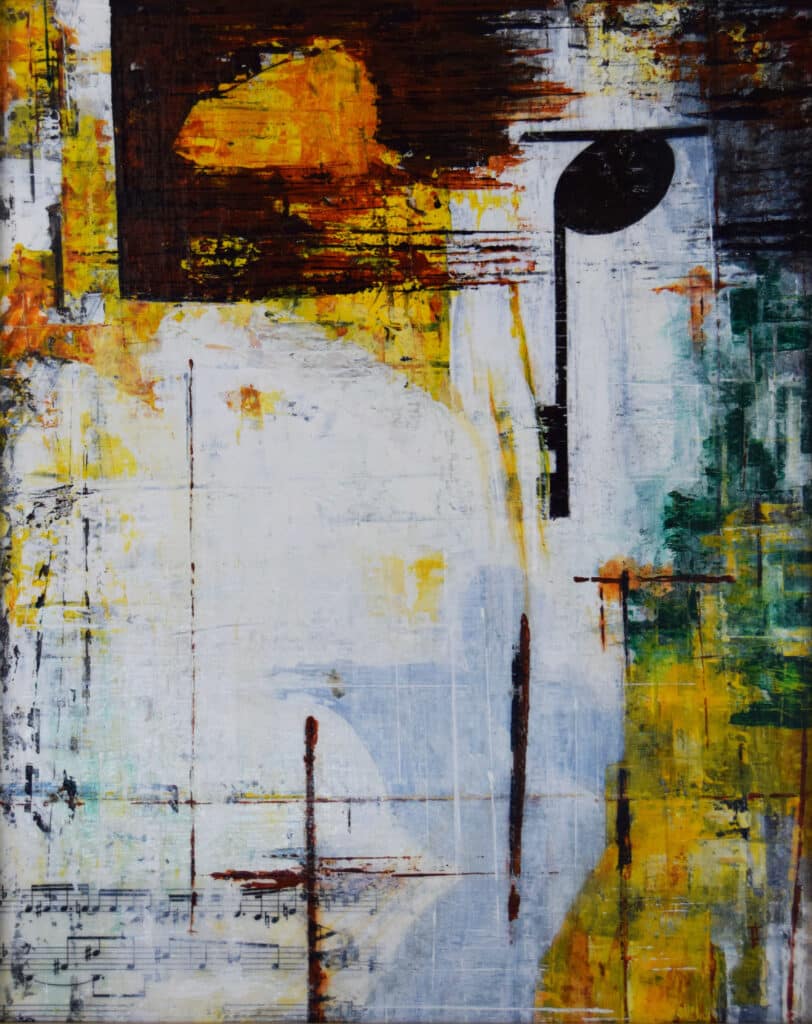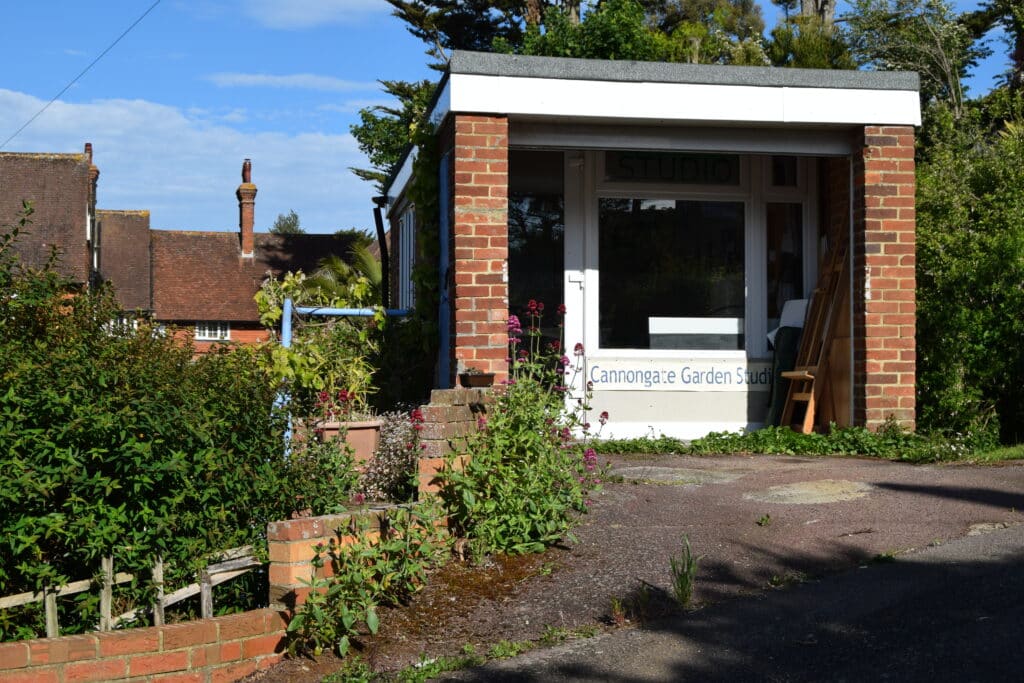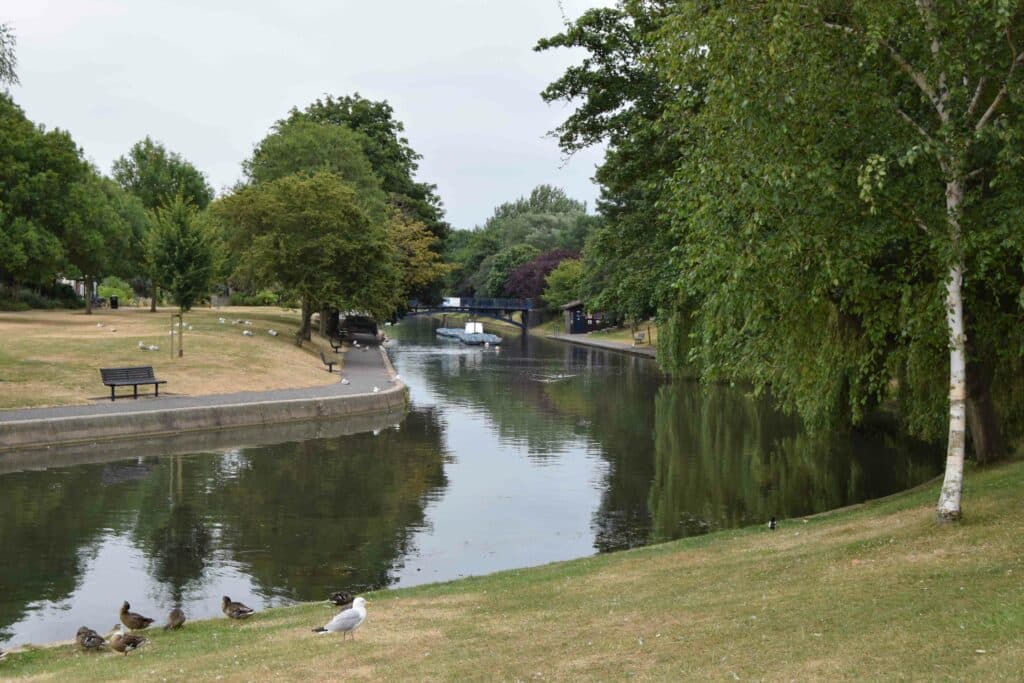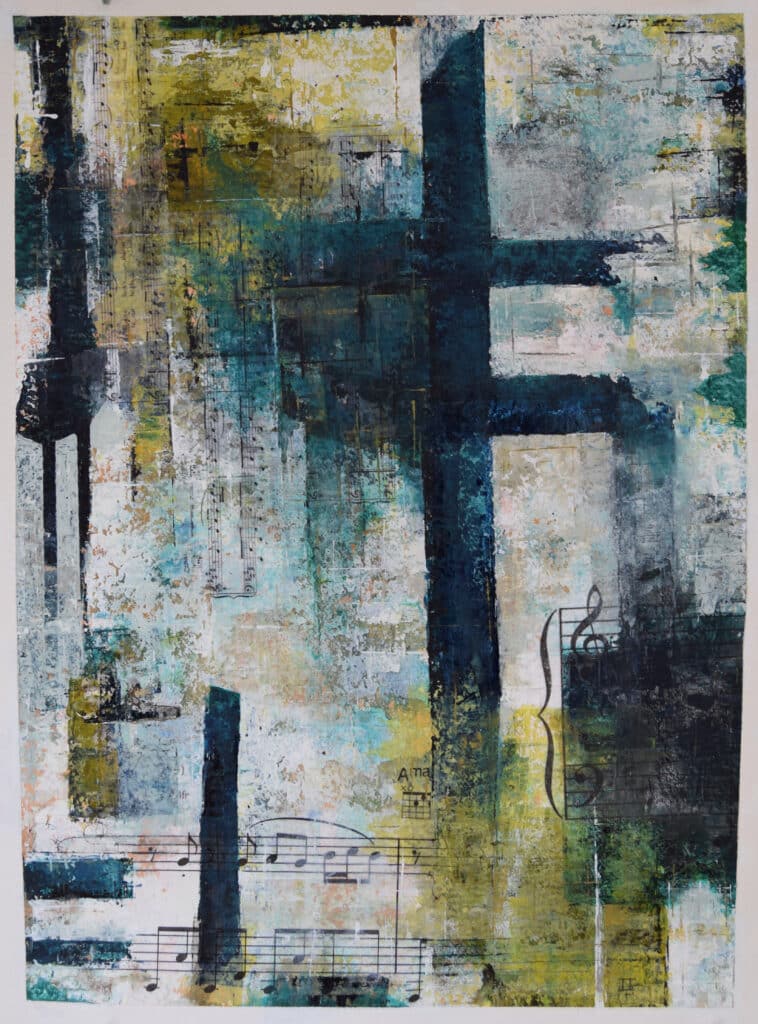London is for buyers, not for artists these days.
But, if art reflects society, will economic segregation change that mirror to a telescope? Artists are being forced out of town due to the high cost of living and the lack of vital studio space. But beware! Once you leave, you may not be able to go back.
A self-styled city girl fresh from Canada, I could only afford to live in London many years ago when I had a corporate job and had no time, nor space, for making art. In shared accommodation, my relatively meagre female salary was not enough to allow the luxury of a flat on my own, never mind a studio. At least I worked for a record company, which was fun and creative, so I enjoyed my job, my new friends, and London itself, immensely. Inspiration was everywhere and it was easy to travel further afield, but destiny had other plans for me.

Romance and adventure drew me to the continent, but when I returned many years later with a family, we had to choose somewhere within budget, to get re-established.
Folkestone was chosen for its prices and accessibility to family in Europe. There were schools, family-sized flats, clean air, gardens and beaches. However, glamour was not one of its strong points. That had disappeared with the Victorian era and kept growth, investment and art connoisseurs away.
With the arrival of the high speed trains, the Creative Foundation, the Folkestone Triennial, and a Banksy, things started to look more positive. However, a limited choice of local jobs, very low salaries and high travel costs kept me pinned down, personally. When I finally retired from my low-wage soul-destroying contact centre job, I was able, at last, to become a full-time artist.

Yes, I have had to take on odd jobs such as cleaning and gardening (to pay for supplies, frames, exhibition fees, printing, website, etc.) because there are no other available part-time jobs down here, but I do have my own studio and I make sure I use it – daily. Although I am not yet making a profit, I have exhibited all over Kent. I have met many wonderful like-minded people who have also given up their corporate or teaching jobs in order to make their own art, and are much happier for it.
Nowadays, the online world gives us the chance to show and sell our art no matter where we are based. But this means that being an artist now means being a jack of all trades and most of our time is spent doing back office and online work (including learning to use online platforms), leaving little time for making art. Unless you have a virtual assistant on your payroll, it’s a D.I.Y. affair. Despite Artquest’s advice that artists should never pay to exhibit art, the truth of the art world today is that the only thing galleries do now is sell space to the artists or ask fees for submitting your work to a competition (inevitably the same thing) and “promote” you online. Everything else is up to you. If this can be done from home, you have to ask yourself if it is worth paying London rent prices.

Yet, it’s still all about location, location, location. If you want to submit to a London competition, the cost of transporting artwork there is off-putting in itself, never mind the cost of travel and hotels to attend important evening events. The galleries (the few that there are) are indeed more accessible to artists down here, but there is a smaller buying public.
The big investors are far away in London being invited, by high end galleries, to swanky preview parties that are only a taxi ride away from their glamorous homes. Does this mean that the high end market will become more narrow-minded or will we see a shift where the collectors or gallery owners know to travel to find the art? It’s impossible to predict.

If artists are alienated from the opportunities, inspiration and social stimulus that the city offers, will the art of the future reflect only telescopic, fantastic or idealistic views? Will it only reflect part of society? Will the art of London artists shrink in size and impact? (Large artworks do need large spaces.)
So, yes, I miss London and would love to move back for the opportunities, inspiration, fun, ease of travel and glamour. But I am now alienated and can’t afford to go back. I do love many aspects of coastal life, and particularly having my own studio space, but doubt that it was a smart business decision.
Therefore, my advice is, if you’re in London, stay there if you can for as long as you can. If you are hankering for space to create, get a full-time paying job now and load up the bank account before you go, to give yourself a decent start. (House and studio space prices are rising here, too.) Don’t expect to find part-time work, or anything that pays more than half the London wage for that same job. Don’t drive? Expect long waits at windy, rainy bus stops. Want to visit your friends or an exhibition in London? Sorry – you can no longer pay the astronomic price of the train. Over 60? Be ready to accept the art world’s unrepentant ageism and bin your free bus pass as you’ll have to give it up (unless you can catch up with the rising retirement age).
Your art will change with your new experience, too, so be ready for that. In this age of personal well-being, perhaps that is apt. Maybe art doesn’t have to reflect society anymore, but the interior of our selfish selves.
So mind that gap when you make the decision to leave London. It’s a big one and there may not be a return train.
Written by France Tetreault.
One day, “Canada’s first female assistant recording engineer” made a dream come true by moving to England – the homeland of her rockstar heroes. After 2 exciting years, France was inspired to move to Paris France where she stayed for 12 years expanding her music business career to classical music, painted in her spare time and studied abstract art under Lionel Perotte. Life events then led her to Bologna Italy (where she was invited to have her first solo exhibition). She stayed over 6 years, after which, she returned to England, eventually turning to painting full-time and becoming “the music lover’s abstract artist”.
Through a method she describes as “Abstract Maximalism”, France translates the experience of music into paintings. Her artworks are mostly mixed media with collage, and often include sheet music from songs that have directly, or indirectly, played a part in her life and career.
